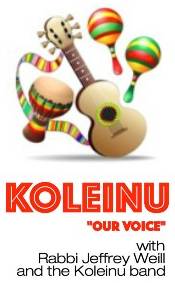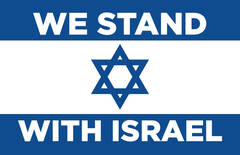- About
- Blogs
- Community
- Events
- Learn
-
Photo Gallery
- Rabbi Weill's 60th Birthday
- Purim Shpiel 2025 Pics
- Purim 2025 Pics
- HH 5785 / 2024 Pics
- Magen David Odam Ambulance Dedication Photos (2024)
-
PAST PURIM SPIELS
- Purim Shpiel 2024 - Ghosts of Purim
- Purim Spiel 2022: Shushan Incorporated (26 photos)
- Purim Spiel 2019: Young Esther Stein (12 photos)
- Purim Spiel 2018: Saving Mordecai (Rehearsal) (81 photos)
- Purim Shpiel 2017: Bye Bye Haman (189 photos)
- Purim Shpiel 2017: Bye Bye Haman (Rehearsal)
- Purim Shpiel 2016: The Queen and I (Rehearsal) (124 photos)
- Purim Shpiel 2015: Li'l Orphan Esther (87 photos)
- Purim Shpiel 2015: Li'l Orphan Esther (Rehearsal) (18 photos)
- Purim Shpiel 2014: PurimTime (70 photos)
- Purim Shpiel 2013: The Book of Esther (27 photos)
- Purim Shpiel 2012: The Trial of Haman (3 photos)
- Purim Shpiel 2011: The Megillah – A Shlock Opera (16 photos)
- Purim Shpiel 2010: The Megillah – A Thrilla' (14 photos)
- Folk and Rock Revue June 2019 (18 photos)
- Sisterhood 2018 Luncheon and Fashion Show (24 photos)
- Sisterhood Ron Balson Author Luncheon (19 photos)
- Sisterhood Chanukah Luncheon (9 photos)
- Kristallnacht 75th Anniversary (13 photos)
- Martin & Henrietta Fox Torah Project (23 photos)
- Sukkah Decorating 2015 (4 photos)
- Resources
- Support
- Worship
Shavuot
05/28/2020 03:39:27 PM
Rabbi Weill
| Author | |
| Date Added | |
| Automatically create summary | |
| Summary |
Dear Friends,
Shavuot, which begins this evening, is one of Judaism's three major festivals (or chaggim), along with Passover and Sukkot. (The High Holidays are not considered "festivals.") Shavuot is, without a doubt, the least observed and most obscure of the three festivals. It's critically important, though, for on Shavuot, we commemorate mattan Torah, the giving of Torah at Mt Sinai.
Questions arise. Who, for instance, do we believe is the giver of Torah? God? Moses? Inspired religious thinkers over the centuries?
Moreover, what is Torah? Is it, strictly speaking, only the Five Books of Moses? Does it encompass the rest of the Jewish Bible -- the Prophets and the Writings? Does it include our rabbinic tradition -- Talmud, Midrash? (The rabbinic sages themselves insisted their spiritual and intellectual work was, indeed, part of the revelation at Sinai.) Do the later commentaries and codes comprise Torah? What about responsa literature? Jewish philosophy? How about Zionist literature, or contemporary Jewish fiction?
I was once speaking to a rabbi who referred to Simon & Garfunkel as "my Torah." I love Simon & Garfunkel, but we should be careful about the casual applications of a word like Torah. Clear definitions are important and helpful.
I will not answer all these questions now. Suffice it to say that these are the sort of questions that we often consider in the limud, the learning we do at Ezra-Habonim, the Niles Township Jewish Congregation. Diving into or sacred works elicits all sorts of provocative conversations. If you have attended -- or Zoomed into -- our classes, I urge you to do so. The company is excellent; the learning is fulfilling; and the coffee is pretty good too.
Tonight, after our short Shavuot service at 8:45, we will begin our annual erev Shavuot learning. I'm looking forward to learning from Dr. Jeff Winter and Rabbi Eli Libenson.
By the way, some have asked about our Land Beyond Torah class. In this class -- Thursdays at 11 -- we read the biblical books that begin where Deuteronomy, the last book of Torah, ends. We are currently reading about the miracle worker Elisha, successor to Elijah, in the middle of Second Kings. There is so much good material to learn! No Hebrew background or knowledge of the Bible is necessary.
Shabbat Shalom and Chag Shavuot Sameach. I pray you are well and hope to see you soon.
Rabbi Jeffrey Weill
Wed, November 5 2025
14 Cheshvan 5786
LOOKING FOR WAYS TO HELP ISRAEL? CLICK HERE
ALSO:
Brothers For Life – Injured soldiers helping injured soldiers
__________________________
"Unveiling Death"
Podcast by Rabbi Weill
![]() CHECK OUT THE LATEST EPISODE - Kaddish Without God: Death & Mourning in Humanistic Judaism: A Conversation with Rabbi Adam Chalom
CHECK OUT THE LATEST EPISODE - Kaddish Without God: Death & Mourning in Humanistic Judaism: A Conversation with Rabbi Adam Chalom
__________________________

Friday, November 7th
7:30 PM
In-Person & Zoom
__________________________
Our Worship Mishpachah
___________________
SHIRENU/OUR SONG
Join EHNTJC's Congregational Choir! We will sing at services and other special events. Led by Cantor Daniel Gale.
Please contact bill@ehnt.org if you are interested in joining.
__________________________










 Like Us On Facebook
Like Us On Facebook